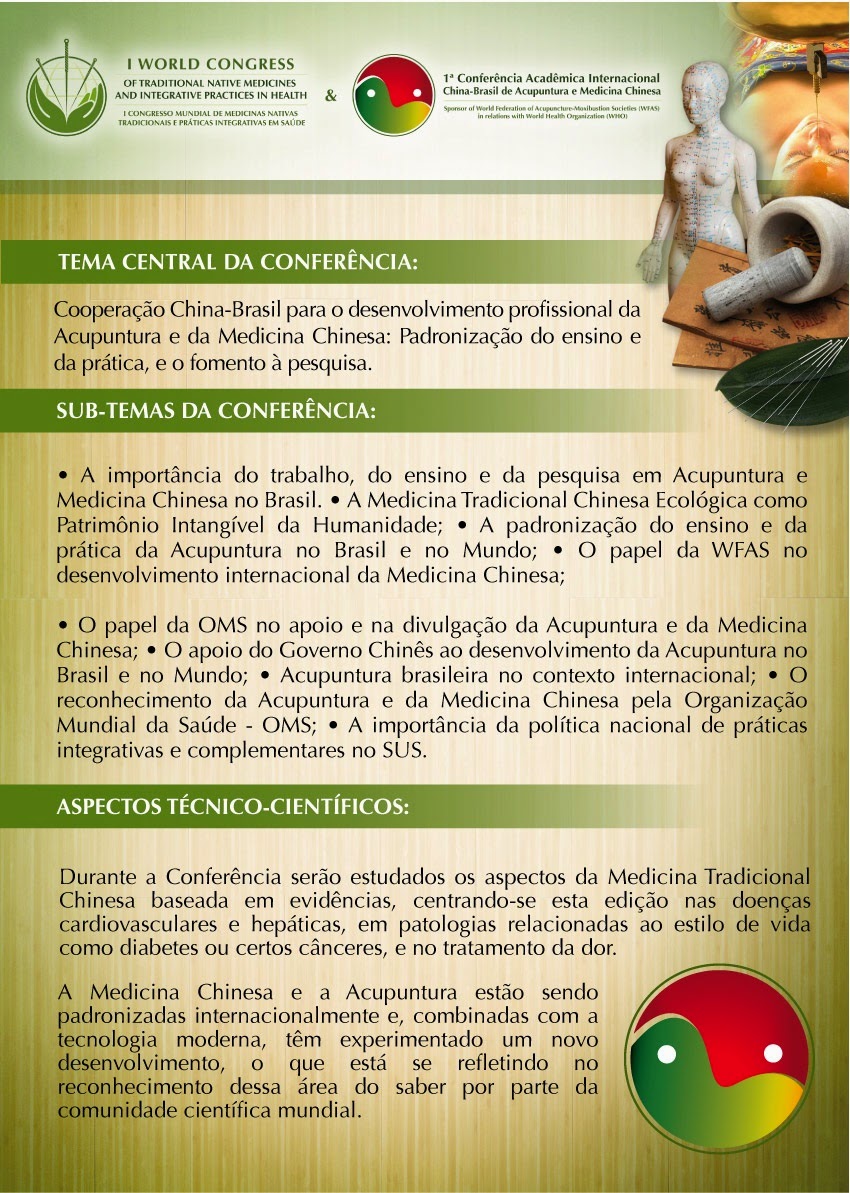Be a supporter. Deposits can be made via PAYPAL
Total Pageviews
Thursday, 30 April 2015
HARVARD AND TAI CHI BENEFITS
Tai chi and chronic pain
The practice dates
back thousands of years
On the physical
side, tai chi supports or improves balance, coordination, flexibility, muscle
strength, and stamina. On the mental side, tai chi helps relieve stress,
improves body awareness and, when done in a group setting, reduces social
isolation. Tai chi can be gentle or vigorous, depending on the style you
practice (there are several different types).
Tai chi helps ease chronic pain
Some solid research shows that tai chi can benefit people with
osteoarthritis, rheumatoid arthritis, fibromyalgia, tension headache, and other
ongoing, painful conditions. In one trial, for example, 66 people with
fibromyalgia were randomized into two groups: one group took tai chi classes
twice a week, the other group attended wellness education and stretching
sessions twice a week. After 12 weeks, those in the tai chi group reported less
pain, fewer depression symptoms, and better sleep than the control group. The
results were published in the New England Journal of Medicine.
http://www.health.harvard.edu/alternative-and-complementary-medicine/tai-chi-and-chronic-pain
Saturday, 25 April 2015
I WORLD CONGRESS ON TRADITIONAL NATIVE MEDICINES AND INTEGRATIVE PRACTICES IN HEALTH, RIO DE JANEIRO, BRAZIL
The World Congress
and the International Conference will have the supported, cooperation and the
recommendation of the WORLD FEDERATION OF ACUPUNCTURE AND SOCIETIES MOXIBUSTION
(WFAS), linked to the World Health Organization (WHO), and with the formal
support of the Rio de Janeiro Government, and various public institutions
and Brazilian academic institutions and was hosted by the Brazilian entity
College of Acupuncture and Chinese Medicine of ABACO.
The mentioned events that will occur for the first
time in Latin America, will be held in the Brazilian College of Surgeons
Convention Center at Rua Visconde Silva, No. 52, Botafogo, Rio de Janeiro, on
19, 20 and 21 June 2015 with representatives of the Governments of Brazil,
China, Japan and Sri Lanka.
OMS - Declaração de Beijing - MEDICINA TRADICIONAL
MEDICINA TRADICIONAL, UM
RAMO DA MEDICINA - A Declaração de Beijing reafirmou claramente a
responsabilidade dos governos para "assegurar o uso adequado, seguro e
eficaz da Medicina Tradicional" através de adequadas políticas,
regulamentos e normas.
Garantir a segurança,
eficácia e qualidade da Medicina Tradicional é uma prioridade na medida em que
ela deve se respeitada, preservada e promovida como um ramo da Medicina.
A
Declaração de Beijing reafirmou a Medicina Tradicional como algo que "deve
ser respeitado, preservado, promovido e comunicado ampla e adequadamente".
UNESCO - RELATÓRIO DE SISTEMAS DE MEDICINA TRADICIONAL E SUAS IMPLICAÇÕES ÉTICAS
UNESCO - MEDICINA TRADICIONAL Integração através da regulamentação
A medicina tradicional assenta num raciocínio analógico e uma abordagem holística de saúde e doença,
enquanto a medicina moderna é baseada em evidências e assenta em conhecimentos científicos.
Isso não quer dizer que elas são incompatíveis. Pelo contrário, essas diferenças dão origem a
complementaridades e até mesmo sinergias, a partir das quais os indivíduos podem se beneficiar.
No entanto, em muitos países a ação nesse sentido foi impedida por falta de conhecimento sistemático
sobre os benefícios e os perigos da medicina tradicional, a necessidade de políticas sólidas garantir a
segurança, eficácia e qualidade dos produtos e tratamentos e, em geral, uma certa relutância em
conceder o estatuto oficial a um ramo da medicina que ainda não é totalmente compreendido.
No entanto, as principais áreas em que a ação é necessária são fáceis de identificar.A regulamentação adequada da Medicina Tradicional é essencial para se tornar
parte do Sistema de Saúde; este é tanto um objetivo nacional quanto
internacional.
Numerosas - mas às vezes incoerentes - políticas e medidas
regulatórias foram introduzidas a nível nacional.
Os
Ministérios da Saúde e outros organismos nacionais ou locais também poderiam
implementar programas para fins específicos, como o apoio a instituições de
pesquisa e os países poderiam introduzir políticas nacionais com vista à
elaboração de leis e regulamentos trazendo as disposições estatutárias e legais
necessárias para regular a prática da medicina tradicional.
Iran to establish UNESCO Chair in Traditional Medicine
Iranian National Commission for UNESCO, along with Iran’s Academy of Medical Sciences, has received the UN body’s approval to establish a chair for traditional medicine, secretary- general of UNESCO National Commission said.
Iran Daily
http://www.iran-daily.com/News/112650.html
Subscribe to:
Comments (Atom)











